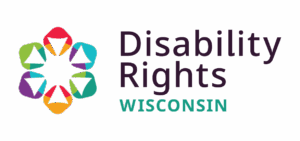The legislature’s Joint Finance Committee (JFC) will meet this Thursday to decide what to include in the Department of Transportation (DOT) budget.
Transportation services are important to people with disabilities because so many do not drive or own a car. Every day, non-drivers struggle to obtain medical care, access food or nutrition services, get to work, vote, run errands and stay connected to family and friends due to the lack of available, affordable, and accessible transportation options. In addition, many caregivers rely on transportation services to allow them to provide care. Limited access to transportation contributes to the workforce crisis and the shortage of caregivers.
Take action NOW! Contact your legislators and share why it is important to increase funding in the state budget for specialized transportation, paratransit, and transit.
Action Steps You Can Take Today
Concerned about non-driver transportation options? Call your State Senator and State Representative as soon as possible. The Joint Finance Committee is voting Thursday.
- When you call or e-mail, say your name, where you live (make sure they know you are a constituent!), and your connection to disability.
- Tell your legislator why it is important to you that state budget increases funding (asks below) for non-driver transportation programs.
How to find your state Senator and Representative.
Type in your address to the “Who are my state legislators?” box and click Find Your Legislator to get your legislators’ e-mail and phone number.
Non-Driver Transportation Budget Asks
Analysis of driver’s license and census track data by the Wisconsin Dept. of Transportation estimates 31% of Wisconsin’s current population are non-drivers, a number that is expected to grow.
Disability and aging advocates are asking for the following increases in existing transportation programs that support non-drivers:
- County Elderly and Disabled Transportation Assistance Program (85.21) – 10% increase ($1.5M per year). Funding is dispersed to counties by a formula based on the number of older adults and people with disabilities that live in the county. In rural areas, this program may be the primary transportation service available to get people to grocery stores, medical appointments, polling stations, libraries and other government agencies, and communities to take care of personal business. Limited program funding means people do not get all the rides they need, and rides are prioritized for nutrition and medical trips.
- Tribal Elderly Transportation Assistance Program (85.215) – 20% increase ($87K per year). A parallel program to 85.21, this program provides transportation for tribal elders.
- Specialized Transportation Program (85.22) – 20% increase ($191K per year). This program helps local non-profits and governments who provide transportation for people with disabilities and older adults purchase Human Service Vehicles, coordinate and operate transportation programs, and fund Mobility Managers. Funding is distributed through a competitive grant program; requests for funding significantly and consistently exceed the monies available.
- Urban Mass Transit Operating Assistance (85.20) – 4% increase. ($1.1 M in 2023-24 and $5.6 in 2024-25). Wisconsin has 81 public transit systems operating across the state. Mass transit includes fixed route bus systems, shared ride taxis, multi-city or county transit systems (like Bay Area Rural Transit). The 4% increase reflects an adjustment for inflation as labor, insurance, and operational costs have increased.
- Paratransit Aids (85.205) – 20% increase ($635K per year). Paratransit is required under the Americans with Disabilities Act as a transit-adjacent service for individuals who cannot use the fixed route transit system. Many people with disabilities or other health conditions face dangers as pedestrians, have challenges traveling to bus stops, and may not have the stamina or health to be able to wait at stops for transit to arrive.

